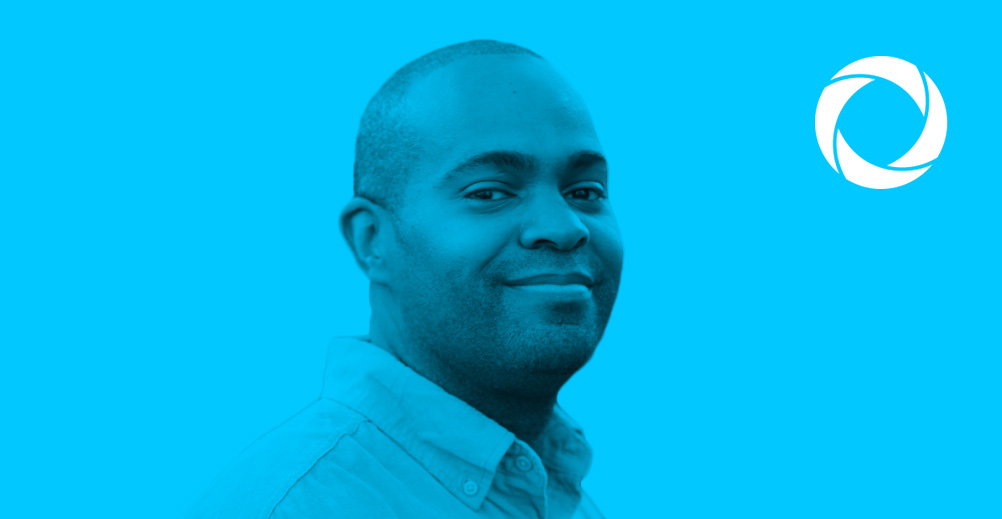
Technology is a powerful part of transforming teaching and learning.
Derek Ham, PhD is an Assistant Professor of Graphic Design and Affiliate Assistant Research Professor of Architecture at North Carolina State’s College of Design. His research interests span the areas of game based learning, algorithmic thinking, and digital fabrication/making. He completed his doctoral work in Design Computation from MIT, holds a Master’s in Architecture from Harvard’s Graduate School of Design, and a Bachelor of Architecture from Hampton University. In his research, he continues to investigate both virtual reality (VR) and augmented realty (AR) technology to find ways these tools can expand the way we teach and learn.
This November, Derek Ham will present at Spark 2017, OETC’s one-day event featuring world-class talks on education, technology, and leadership.
In anticipation of this event, we conducted a brief personal interview with Dr. Ham. Read the full interview below!
Who are you, and what do you do?
I’m Derek Ham, an Assistant Professor at NC State’s College of Design. I teach in the focus area of design and technology and conduct research on virtual reality (VR). More specifically I’m looking at how VR impacts learning across several disciplines and age groups.
What is the best part of your job?
I like going after problems. Trying to solve problems and coming up with solutions for complex issues is what I thrive on. I enjoy collaborating with my students to do this, because in many ways being an educator means you enjoy learning yourself.
What are your technology “must-haves”—the technology (hardware, software—whatever falls into your definition of the category) that you could not get through the day without?
My iPhone – or more broadly, mobile devices – are such a versatile tool. Beyond the convenience of having a mini-workstation in the palm of your hand, I’ve been working on VR applications for mobile devices through WebVR experiences. WebVR through mobile devices helps democratize the entry point (somewhat) for VR. All you need is a Google Cardboard paired with most smartphones, and you can experience and make amazing immersive experiences.
How did technology affect your own education? Is there anything you miss about technology at that time?
For the most part I was classically trained without a lot of technology. That’s to say I did a lot of drawing and sketching using analog tools. But we have to remember that a mechanical pencil and a pen are all modern conventions and forms of technology in themselves. However, if you are talking about “digital” or digital technology that’s a different story. I didn’t have access to those tools until my last few years of high school. My immediate approach was to use them in unconventional ways, the hacker way of thinking. I always wanted to see how things would work beyond what the manual says.
What is your hope for the future of technology in education?
I’ve been heavily influenced by theories of constructionism and hope more educators approach emerging technology with this type of pedagogy. Teach students to be makers rather than just consumers of new tech. To do so, we have to show them how to look underneath the hood and get messy. We need to give opportunities for students to make in the early stages of a new technology’s birth.
f you could go out for coffee with anyone—historical or contemporary, real or fictional, celebrity or unknown—who would it be?
Not to sound super religious or anything, but I’d love to have coffee with Jesus Christ. I can’t think of anyone who has been more polarizing than this figure. Some either love him and base their entire lives around him; others hate him and despise (if not him) his modern day followers. Martin Luther King Jr. and others based the Civil Rights Movement on his teachings; Mother Teresa lived a life of service to the sick and poor through dedication to his teaching. But then there’s people who have used his name for various political gains (not to name names). So I think there is something very interesting about him and I’d love to hear directly from the source. What have we gotten right and what we’ve gotten wrong about his life and message? So yeah a cup of coffee with Jesus would be great, or perhaps some of that water he turns to wine.
To hear more of Dr. Ham’s thoughts on visual learning and thinking, register for Spark 2017, OETC’s one-day event featuring world-class talks on education, technology, and leadership.